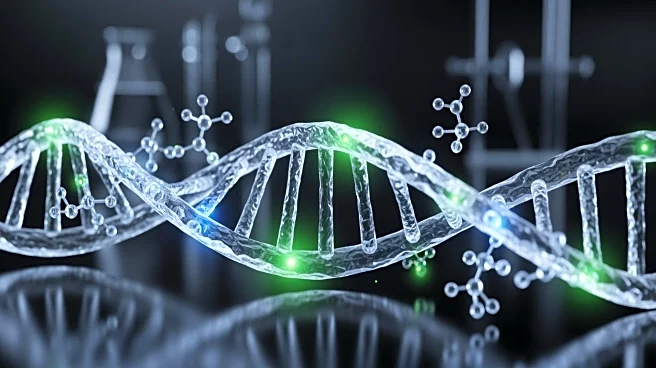What's Happening?
A recent study has explored the use of tumour-based epigenetic signatures as markers for prostate cancer aggressiveness following radical prostatectomy. The research involved 293 Australian participants
with prostate cancer, focusing on DNA methylation-based signatures to assess the risk of prostate-specific antigen (PSA) recurrence. The study found that these epigenetic markers were strongly associated with age, Gleason score, and tumour stage, but not with serum PSA levels at diagnosis. The strongest association was observed with the cell division score RepliTali, which indicated an increased risk of PSA recurrence. This suggests that epigenetic biomarkers could provide a more accurate assessment of tumour aggressiveness than traditional clinical metrics.
Why It's Important?
The findings of this study are significant as they offer a potential advancement in the management of prostate cancer. By identifying epigenetic markers that correlate with cancer aggressiveness, healthcare providers could improve prognostic accuracy and tailor treatment plans more effectively. This could lead to better patient outcomes by identifying those at higher risk of recurrence and adjusting therapeutic strategies accordingly. The study highlights the importance of integrating biological heterogeneity into clinical assessments, which could revolutionize the approach to prostate cancer treatment and potentially reduce mortality rates associated with the disease.
What's Next?
Further research is likely needed to validate these findings and explore the practical application of epigenetic markers in clinical settings. This could involve larger-scale studies to confirm the reliability of these biomarkers across diverse populations. Additionally, the development of standardized protocols for incorporating epigenetic analysis into routine prostate cancer care could be pursued. Stakeholders such as medical researchers, oncologists, and healthcare institutions may collaborate to advance this promising area of cancer diagnostics.
Beyond the Headlines
The use of epigenetic markers in cancer diagnosis and treatment represents a broader shift towards personalized medicine. This approach considers individual genetic and epigenetic profiles to optimize treatment strategies, potentially leading to more effective and less invasive interventions. The ethical implications of genetic testing and data privacy will need to be addressed as these technologies become more integrated into healthcare systems.











